Life
Sign up for our newsletter
We summarize the week's scientific breakthroughs every Thursday.
-
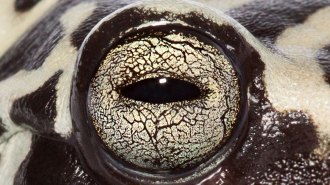 Animals
AnimalsFrog and toad pupils mainly come in seven different shapes
Analyzing over 3,200 species revealed that the colorful eyes of frogs and toads have pupils shaped as slits, diamonds, fans and more.
-
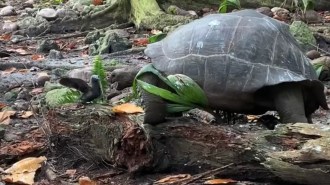 Animals
AnimalsA giant tortoise was caught stalking, killing and eating a baby bird
Video captures the first documented instance of a tortoise hunting another animal.
-
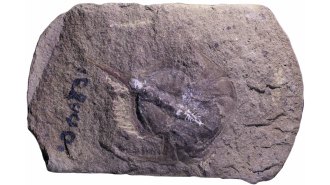 Paleontology
PaleontologyHow fossilization preserved a 310-million-year-old horseshoe crab’s brain
A 310-million-year-old horseshoe crab’s brain was preserved in clay, thanks to an uncommon fossilization process that protected the fragile neural tissues.
-
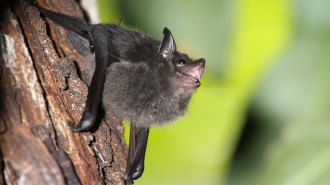 Animals
AnimalsThese baby greater sac-winged bats babble to learn their mating songs
Greater sac-winged bat pups babble their way through learning their rich vocal repertoire, similar to how human infants babble before speaking.
-
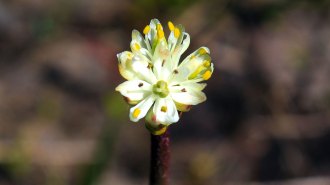 Plants
PlantsA well-known wildflower turns out to be a secret carnivore
A species of false asphodel wildflower snags prey with gluey, enzyme-secreting hairs, leaving a trail of insect corpses on its flowering stem.
-
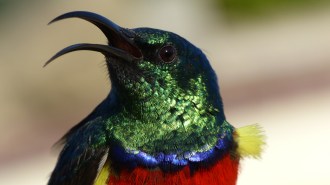 Animals
AnimalsSunbirds’ dazzling feathers are hot, in both senses of the word
Iridescent feathers reflect vivid colors. But they also become scorching hot in the sunlight, a study finds.
By Jake Buehler -
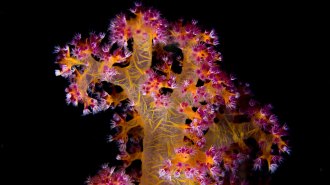 Life
LifeProbiotics help lab corals survive deadly heat stress
In a lab experiment, probiotics prevented the death of corals under heat stress, suggesting beneficial microbes could help save ailing reefs.
-
 Genetics
GeneticsAn Indigenous people in the Philippines have the most Denisovan DNA
Genetic comparisons crown the Indigenous Ayta Magbukon people as having the most DNA, 5 percent, from the mysterious ancient hominids.
By Bruce Bower -
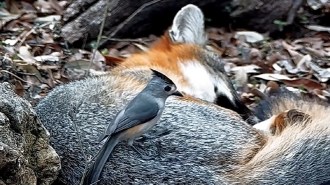 Life
LifeScientists have a new word for birds stealing animal hair
Dozens of YouTube videos show birds stealing hair from dogs, cats, humans, raccoons and even a porcupine — a behavior rarely documented by scientists.
-
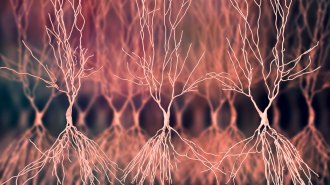 Health & Medicine
Health & MedicineRipples in rats’ brains tied to memory may also reduce sugar levels
Brain signals called sharp-wave ripples have an unexpected job: influencing the body’s sugar levels, a study in rats suggests.
-
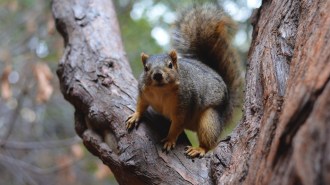 Animals
AnimalsSquirrels use parkour tricks when leaping from branch to branch
Squirrels navigate through trees by making rapid calculations to balance trade-offs between branch flexibility and the distance between tree limbs.
-
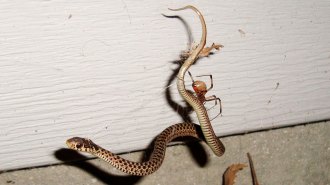 Animals
AnimalsSnake-eating spiders are surprisingly common
Spiders from at least 11 families feed on serpents many times their size, employing a host of tactics to turn even venomous snakes into soup.
By Asher Jones